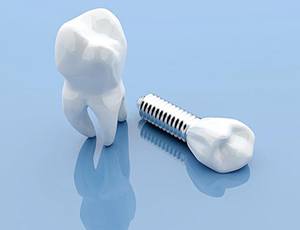Tooth Extraction -- Fayetteville, AR
Comfortable, Efficient Teeth Removals for Better Oral Health
 The goal of conservative dentistry is to help you keep your natural teeth for as long as
possible. However, sometimes a tooth must be removed to protect your lasting oral and overall health. In these
cases, we are pleased to offer excellent tooth removals that are both comfortable and efficient. This procedure is
completed over the course of one visit and can help you regain total health and wellness in just a few days. Keep
reading to learn more about how tooth removals work, and what you can expect if you need to have a tooth extraction
in Fayetteville.
The goal of conservative dentistry is to help you keep your natural teeth for as long as
possible. However, sometimes a tooth must be removed to protect your lasting oral and overall health. In these
cases, we are pleased to offer excellent tooth removals that are both comfortable and efficient. This procedure is
completed over the course of one visit and can help you regain total health and wellness in just a few days. Keep
reading to learn more about how tooth removals work, and what you can expect if you need to have a tooth extraction
in Fayetteville.
When Is Extraction Required?
 We will recommend tooth
extraction when it is clear that the tooth cannot be rescued with a dental crown or root canal and that its
existence in the mouth is posing a threat to your oral health. A tooth extraction is often required for significant
tooth decay or for an abscessed tooth. Additionally, the third molars, or wisdom teeth, will usually need to be
removed if they cause problems upon eruption. Wisdom teeth may become impacted or infected, or they may push against
the surrounding teeth to cause problems with dental alignment. In fact, the wisdom teeth are the most common
extraction most dentists perform.
We will recommend tooth
extraction when it is clear that the tooth cannot be rescued with a dental crown or root canal and that its
existence in the mouth is posing a threat to your oral health. A tooth extraction is often required for significant
tooth decay or for an abscessed tooth. Additionally, the third molars, or wisdom teeth, will usually need to be
removed if they cause problems upon eruption. Wisdom teeth may become impacted or infected, or they may push against
the surrounding teeth to cause problems with dental alignment. In fact, the wisdom teeth are the most common
extraction most dentists perform.
What Is the Process for Tooth Extraction?
 Tooth extractions
are performed under local anesthesia and/or sedation, as desired for maximum relief and comfort. The procedure will
only begin once we are sure you are completely comfortable.
Tooth extractions
are performed under local anesthesia and/or sedation, as desired for maximum relief and comfort. The procedure will
only begin once we are sure you are completely comfortable.
There are two types of extractions:
- Simple: This is possible for teeth that are intact and have erupted from the gum line. Using a forceps-like instrument, we will gently wiggle the tooth until it comes out in one piece.
- Surgical: More common is the surgical extraction, which is required for teeth that have broken off at the gum line or are otherwise too weak to remove in one piece. The gums will be opened and the tooth will be removed in however many pieces are required.
If the tooth that is being removed is necessary for your oral function, we can talk about replacement options with a dental implant in the same appointment.
What Is Recovery Like after Extraction?
 Your recovery period
depends on whether you had a simple or surgical extraction. After a simple extraction, you should feel back to
normal the next morning or soon after. A surgical extraction takes a little longer. We may send you home with
medication and talk you through specific post-op instructions, like maintaining a soft foods diet until you feel
comfortable chewing. Follow these directions carefully and do not hesitate to get in touch if bleeding, discomfort,
or swelling worsen or do not improve after several days.
Your recovery period
depends on whether you had a simple or surgical extraction. After a simple extraction, you should feel back to
normal the next morning or soon after. A surgical extraction takes a little longer. We may send you home with
medication and talk you through specific post-op instructions, like maintaining a soft foods diet until you feel
comfortable chewing. Follow these directions carefully and do not hesitate to get in touch if bleeding, discomfort,
or swelling worsen or do not improve after several days.
Contact Us Today
Whether you need to schedule a tooth extraction or you need to book one for as soon as possible, your restorative and emergency dentist in Fayetteville is just a phone call away! You are invited to contact us to schedule an appointment today.
Tooth Extractions FAQs

Are There Any Alternatives to a Tooth Extraction?
There are plenty of ways to repair a damaged tooth (such as fillings, crowns, and root canal therapy), but by the time a dentist in Fayetteville has suggested an extraction, it’s usually because it’s the only viable option. At that point, the tooth has sustained so much damage, decay, or infection that allowing it to remain in your mouth could put the rest of your teeth in jeopardy. The best way to avoid needing a tooth extraction is to take excellent care of the natural teeth you still have by maintaining daily oral hygiene and attending regular checkups every six months.
Does Getting a Tooth Extracted Hurt?
Before we begin the actual extraction procedure, we’ll administer local anesthesia and make sure that your mouth is completely numb. We’ll only proceed once we’ve verified that you won’t feel any pain during your extraction. With that being said, you might feel a slight pressure as the tooth is being removed, but it shouldn’t be uncomfortable, let alone painful. Of course, you can expect some residual soreness for a few days afterward, but this should be manageable as long as you follow the aftercare instructions we provide.
Can I Smoke After Getting a Tooth Extracted?
We strongly recommend against smoking or any type of tobacco use for at least five days after a tooth extraction. Ideally, you should wait for two weeks or longer. Tobacco not only delays the body’s healing process, but it also increases the risk of oral infection. As a result, smoking after a tooth extraction could all too easily lead to disaster. If you currently use tobacco and have struggled to quit in the past, please reach out to our team for help before getting a tooth removed. We’ll be happy to point you toward the right resources that can prepare you for your extraction as safely as possible.
Can I Leave the Space Empty After a Tooth Extraction?
Unless we’re removing wisdom teeth, we generally suggest that you consider replacing the tooth once you’ve healed from the extraction. It may be tempting to leave the space empty, especially if the tooth was located in the back of your mouth and doesn’t leave behind a noticeable gap. However, each and every one of your teeth plays an essential role in your oral health as a whole. Even one missing tooth can cause the rest of your pearly whites to shift out of their proper alignment, leading to discomfort, orthodontic problems, and chewing difficulties later on. To prevent such risks, we encourage you to meet with us and discuss your options for replacing the extracted tooth, such as with a dental implant.

